https://www.propublica.org/article/samuel-alito-luxury-fishing-trip-paul-singer-scotus-supreme-court >~~ reommended by dmorista ~~
Introduction:
Collectivist Action did us all the favor yesterday of posting a video that discussed the outrageous corruption of both Clarence Thomas and Brett Kavanaugh, two of the more reactionary members of the discredited Partisan Hack dominated U.S. Supreme Court. ProPublica, on Tuesday June 20th, released another fine article about Judicial Corruption and lavish gifts to the reactionary justices. This time ProPublica revealed that Samuel Alito accepted extravagant gifts from extreme right-wing Hedge Fund owner Paul Singer.
Alito was, of course. the author of the Judicial Opinion that overturned Roe v. Wade, an opinion that quoted several times, the writing of a 16th century judge who personally ordered the burning at the stake of several women accused of witchcraft. The ProPublica article also mentions other extreme right-wing figures who were present at the Alaska fishing trip; to which Alito was provided a $100,000 charter plane flight. These included Leonard Leo, the main figure at the Federalist Society who personally recruits young reactionaries and fascists for confirmation to the Federal Courts.
As for Paul Singer, he is known even in Finance Capital circles, as “The Vulture”. More about him in the next couple of days.
Justice Samuel Alito Took Luxury Fishing Vacation With GOP Billionaire Who Later Had Cases Before the Court
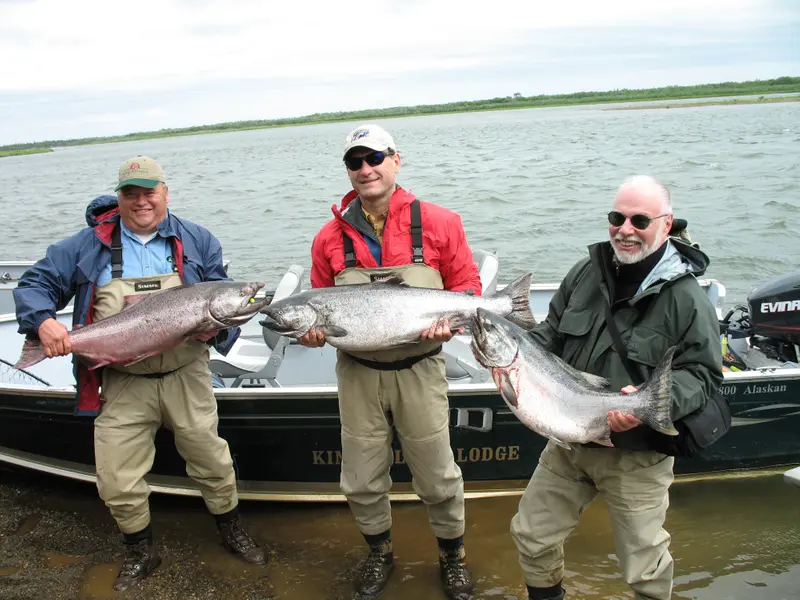
ProPublica is a nonprofit newsroom that investigates abuses of power. Sign up to receive our biggest stories as soon as they’re published.
In early July 2008, Samuel Alito stood on a riverbank in a remote corner of Alaska. The Supreme Court justice was on vacation at a luxury fishing lodge that charged more than $1,000 a day, and after catching a king salmon nearly the size of his leg, Alito posed for a picture. To his left, a man stood beaming: Paul Singer, a hedge fund billionaire who has repeatedly asked the Supreme Court to rule in his favor in high-stakes business disputes.
Singer was more than a fellow angler. He flew Alito to Alaska on a private jet. If the justice chartered the plane himself, the cost could have exceeded $100,000 one way.
In the years that followed, Singer’s hedge fund came before the court at least 10 times in cases where his role was often covered by the legal press and mainstream media. In 2014, the court agreed to resolve a key issue in a decade-long battle between Singer’s hedge fund and the nation of Argentina. Alito did not recuse himself from the case and voted with the 7-1 majority in Singer’s favor. The hedge fund was ultimately paid $2.4 billion.
Alito did not report the 2008 fishing trip on his annual financial disclosures. By failing to disclose the private jet flight Singer provided, Alito appears to have violated a federal law that requires justices to disclose most gifts, according to ethics law experts.
Experts said they could not identify an instance of a justice ruling on a case after receiving an expensive gift paid for by one of the parties.
“If you were good friends, what were you doing ruling on his case?” said Charles Geyh, an Indiana University law professor and leading expert on recusals. “And if you weren’t good friends, what were you doing accepting this?” referring to the flight on the private jet.
Justices are almost entirely left to police themselves on ethical issues, with few restrictions on what gifts they can accept. When a potential conflict arises, the sole arbiter of whether a justice should step away from a case is the justice him or herself.
ProPublica’s investigation sheds new light on how luxury travel has given prominent political donors — including one who has had cases before the Supreme Court — intimate access to the most powerful judges in the country. Another wealthy businessman provided expensive vacations to two members of the high court, ProPublica found. On his Alaska trip, Alito stayed at a commercial fishing lodge owned by this businessman, who was also a major conservative donor. Three years before, that same businessman flew Justice Antonin Scalia, who died in 2016, on a private jet to Alaska and paid the bill for his stay.
Such trips would be unheard of for the vast majority of federal workers, who are generally barred from taking even modest gifts.
Leonard Leo, the longtime leader of the conservative Federalist Society, attended and helped organize the Alaska fishing vacation. Leo invited Singer to join, according to a person familiar with the trip, and asked Singer if he and Alito could fly on the billionaire’s jet. Leo had recently played an important role in the justice’s confirmation to the court. Singer and the lodge owner were both major donors to Leo’s political groups.
ProPublica’s examination of Alito’s and Scalia’s travel drew on trip planning emails, Alaska fishing licenses, and interviews with dozens of people including private jet pilots, fishing guides, former high-level employees of both Singer and the lodge owner, and other guests on the trips.
ProPublica sent Alito a list of detailed questions last week, and on Tuesday, the Supreme Court’s head spokeswoman told ProPublica that Alito would not be commenting. Several hours later, The Wall Street Journal published an op-ed by Alito responding to ProPublica’s questions about the trip.
Alito said that when Singer’s companies came before the court, the justice was unaware of the billionaire’s connection to the cases. He said he recalled speaking to Singer on “no more than a handful of occasions,” and they never discussed Singer’s business or issues before the court.
Alito said that he was invited to fly on Singer’s plane shortly before the trip and that the seat “would have otherwise been vacant.” He defended his failure to report the trip to the public, writing that justices “commonly interpreted” the disclosure requirements to not include “accommodations and transportation for social events.”
In a statement, a spokesperson for Singer told ProPublica that Singer didn’t organize the trip and that he wasn’t aware Alito would be attending when he accepted the invitation. Singer “never discussed his business interests” with the justice, the spokesperson said, adding that at the time of trip, neither Singer nor his companies had “any pending matters before the Supreme Court, nor could Mr. Singer have anticipated in 2008 that a subsequent matter would arise that would merit Supreme Court review.”
Leo did not respond to questions about his organizing the trip but said in a statement that he “would never presume to tell” Alito and Scalia “what to do.”
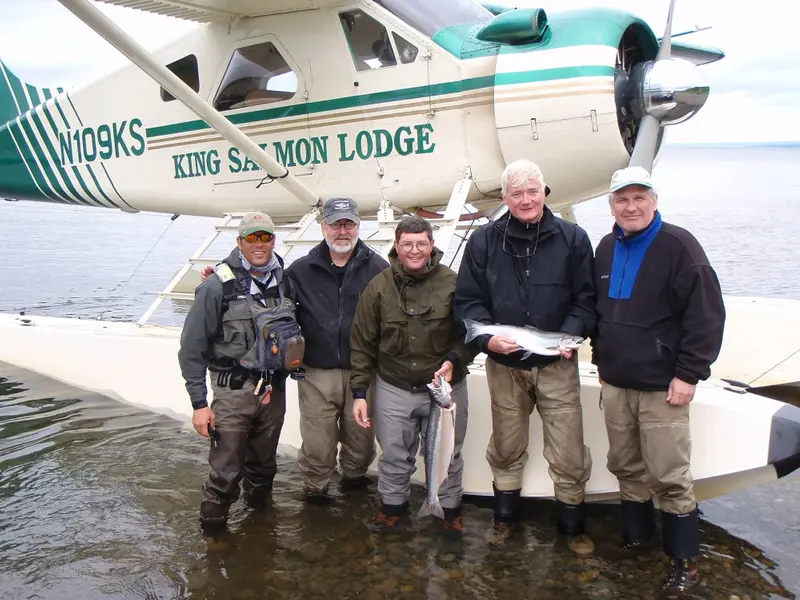
This spring, ProPublica reported that Justice Clarence Thomas received decades of luxury travel from another Republican megadonor, Dallas real estate magnate Harlan Crow. In a statement, Thomas defended the undisclosed trips, saying unnamed colleagues advised him that he didn’t need to report such gifts to the public. Crow also gave Thomas money in an undisclosed real estate deal and paid private school tuition for his grandnephew, who Thomas was raising as a son. Thomas reported neither transaction on his disclosure forms.
The undisclosed gifts have prompted lawmakers to launch investigations and call for ethics reform. Recent bills would impose tighter rules for justices’ recusals, require the Supreme Court to adopt a binding code of conduct and create an ethics body, which would investigate complaints. Neither a code nor an ethics office currently exists.
“We wouldn’t tolerate this from a city council member or an alderman,” Sen. Dick Durbin, an Illinois Democrat and chair of the Senate Judiciary Committee, said of Thomas in a recent hearing. “And yet the Supreme Court won’t even acknowledge it’s a problem.”
So far, the court has chafed at the prospect of such reforms. Though the court recently laid out its ethics practices in a statement signed by all nine justices, Chief Justice John Roberts has not directly addressed the recent revelations. In fact, he has repeatedly suggested Congress might not have the power to regulate the court at all.
“We Take Good Care of Him Because He Makes All the Rules”
In the 1960s in his first year at Harvard Law School, Singer was listening to a lecture by a famed liberal professor when, he later recalled, he had an epiphany: “My goodness. They’re making it up as they go along.”
It was a common sentiment among conservative lawyers, who often accuse liberal judges of activist overreach. While Singer’s career as an attorney was short-lived, his convictions about the law stayed with him for decades. After starting a hedge fund that eventually made him one of the richest people in the country, he began directing huge sums to causes on the right. That included groups, like the Federalist Society, dedicated to fostering the conservative legal movement and putting its followers on the bench.
In the last decade, Singer has contributed over $80 million to Republican political groups. He has also given millions to the Manhattan Institute, a conservative think tank where he has served as chairman since 2008. The institute regularly files friend-of-the-court briefs with the Supreme Court — at least 15 this term, including one asking the court to block student loan relief.
Singer’s interest in the courts is more than ideological. His hedge fund, Elliott Management, is best known for making investments that promise handsome returns but could require bruising legal battles. Singer has said he’s drawn to positions where you “control your own destiny, not just riding up and down with the waves of financial markets.” That can mean pressuring corporate boards to fire a CEO, brawling with creditors over the remains of a bankrupt company and suing opponents.
The fund now manages more than $50 billion in assets. “The investments are extremely shrewdly litigation-driven,” a person familiar with Singer’s fund told ProPublica. “That’s why he’s a billionaire.”
Singer’s most famous gamble eventually made its way to the Supreme Court.
In 2001, Argentina was in a devastating economic depression. Unemployment skyrocketed and deadly riots broke out in the street. The day after Christmas, the government finally went into default. For Singer, the crisis was an opportunity. As other investors fled, his fund purchased Argentine government debt at a steep discount.
Within several years, as the Argentine economy recovered, most creditors settled with the government and accepted a fraction of what the debt was originally worth. But Singer’s fund, an arm of Elliott called NML Capital, held out. Soon, they were at war: a midtown Manhattan-based hedge fund trying to impose its will on a sovereign nation thousands of miles away.
The fight played out on familiar turf for Singer: the U.S. courts. He launched an aggressive legal campaign to force Argentina to pay in full, and his personal involvement in the case attracted widespread media attention. Over 13 years of litigation, the arguments spanned what rights foreign governments have in the U.S. and whether Argentina could pay off debts to others before Singer settled his claim.
If Singer succeeded, he stood to make a fortune.
In 2007, for the first but not the last time, Singer’s fund asked the Supreme Court to intervene. A lower court had stopped Singer and another fund from seizing Argentine central bank funds held in the U.S. The investors appealed, but that October, the Supreme Court declined to take up the case.
On July 8 of the following year, Singer took Alito to Alaska on the private jet, according to emails, flight data from the Federal Aviation Administration and people familiar with the trip.
The group flew across the country to the town of King Salmon on the Alaska peninsula. They returned to the East Coast three days later.
In Alaska, they stayed at the King Salmon Lodge, a luxury fishing resort that drew celebrities, wealthy businessmen and sports stars. On July 9, one of the lodge’s pilots flew Alito and other guests around 70 miles to the west to fish the Nushagak River, known for one of the best salmon runs in the world. Snapshots from the trip show Alito in waders and an Indianapolis Grand Prix hat, smiling broadly as he holds his catch.
“Sam Alito is in the red jacket there,” one lodge worker said, as he narrated an amateur video of the justice on the water. “We take good care of him because he makes all the rules.”
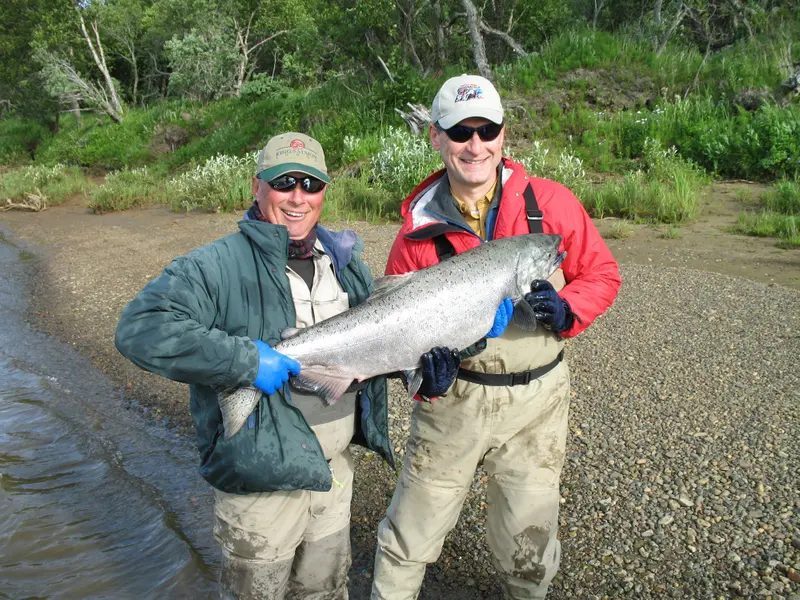
Other guests on the trip included Leo, the Federalist Society leader, and Judge A. Raymond Randolph, a prominent conservative appellate judge for whom Leo had clerked, according to fishing licenses and interviews with lodge staff.
On another day, the group flew on one of the lodge’s bush planes to a waterfall in Katmai National Park, where bears snatch salmon from the water with their teeth. At night, the lodge’s chefs served multicourse meals of Alaskan king crab legs or Kobe filet. On the last evening, a member of Alito’s group bragged that the wine they were drinking cost $1,000 a bottle, one of the lodge’s fishing guides told ProPublica.
In his op-ed, Alito described the lodge as a “comfortable but rustic facility.” The justice said he does not remember if he was served wine, but if he was, it didn’t cost $1,000 a bottle. (Alito also pointed readers to the lodge’s website. The lodge has been sold since 2008 and is now a more downscale accommodation.)
The justice’s stay was provided free of charge by another major donor to the conservative legal movement: Robin Arkley II, the owner of a mortgage company then based in California. Arkley had recently acquired the fishing lodge, which catered to affluent tourists seeking a luxury experience in the Alaskan wilderness. A planning document prepared by lodge staff describes Alito as a guest of Arkley. Another guest on the trip told ProPublica the trip was a gift from Arkley, and two lodge employees said they were told that Alito wasn’t paying.
Arkley, who does not appear to have been involved in any cases before the court, did not respond to detailed questions for this story.
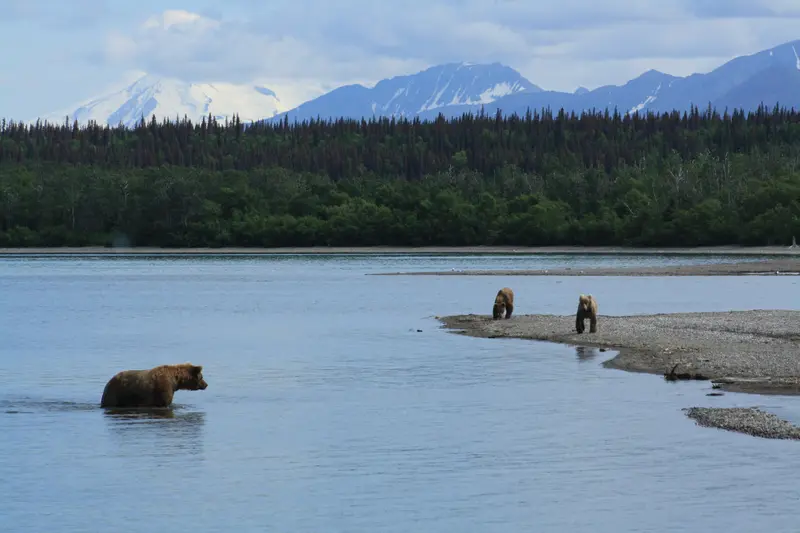
Alito did not disclose the flight or the stay at the fishing lodge in his annual financial disclosures. A federal law passed after Watergate requires federal officials including Supreme Court justices to publicly report most gifts. (The year before, Alito reported getting $500 of Italian food and wine from a friend, noting that his friend was unlikely to “appear before this Court.”)
The law has a “personal hospitality” exemption: If someone hosts a justice on their own property, free “food, lodging, or entertainment” don’t always have to be disclosed. But the law clearly requires disclosure for gifts of private jet flights, according to seven ethics law experts, and Alito appears to have violated it. The typical interpretation of the law required disclosure for his stay at the lodge too, experts said, since it was a commercial property rather than a vacation home. The judiciary’s regulations did not make that explicit until they were updated earlier this year.
In his op-ed, Alito said that justices “commonly interpreted” the law’s exception for hospitality “to mean that accommodations and transportation for social events were not reportable gifts.”
His op-ed pointed to language in the judiciary’s filing instructions and cited definitions from Black’s Law Dictionary and Webster’s. But he did not make reference to the judiciary’s regulations or the law itself, which experts said both clearly required disclosure for gifts of travel. ProPublica found at least six examples of other federal judges disclosing gifts of private jet travel in recent years.
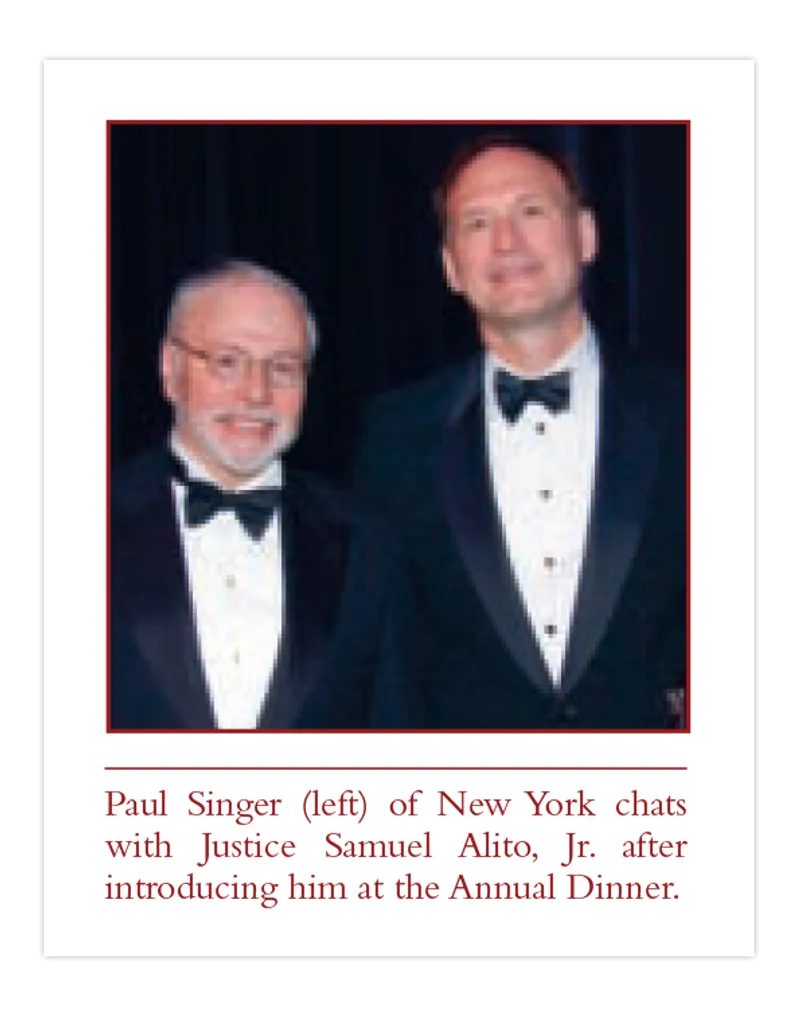
“The exception only covers food, lodging and entertainment,” said Virginia Canter, a former government ethics lawyer now at the watchdog group CREW. “He’s trying to move away from the plain language of the statute and the regulation.”
The Alaska vacation was the first time Singer and Alito met, according to a person familiar with the trip. After the trip, the two appeared together at public events. When Alito spoke at the annual dinner of the Federalist Society lawyers convention the following year, the billionaire introduced him. The justice told a story about having an encounter with bears during a fishing trip with Singer, according to the legal blog Above the Law. He recalled asking himself: “Do you really want to go down in history as the first Supreme Court justice to be devoured by a bear?”
The year after that, in 2010, Alito delivered the keynote speech at a dinner for donors to the Manhattan Institute. Once again, Singer delivered a flattering introduction. “He and his small band of like-minded justices are a critical and much-appreciated bulwark of our freedom,” Singer told the crowd. “Samuel Alito is a model Supreme Court justice.”

Meanwhile, Singer and Argentina kept asking the Supreme Court to intervene in their legal fight. His fund enlisted Ted Olson, the famed appellate lawyer who represented George W. Bush in the Bush v. Gore case during the 2000 presidential election.
In January 2010, a year and a half after the Alaska vacation, the fund once again asked the high court to take up an aspect of the dispute. The court declined. In total, parties asked the court to hear appeals in the litigation eight times in the six years after the trip. In most instances, it was Singer’s adversaries filing an appeal, with Singer’s fund successfully arguing for the justices to decline the case and let stand a lower court ruling.
The Supreme Court hears a tiny portion of the many cases it’s asked to rule on each year. Under the court’s rules, cases are only accepted when at least four of the nine justices vote to take it up. The deliberations on whether to take a case are shrouded in secrecy and happen at meetings attended only by the justices. These decisions are a fundamental way the court wields power. The justices’ votes are not typically made public, so it is unclear how Alito voted on the petitions involving Singer.
As Singer’s battle with Argentina intensified, his hedge fund launched an expansive public relations and lobbying campaign. In 2012, the hedge fund even attempted to seize an Argentine navy ship docked in Ghana to secure payment from the country. (The effort was thwarted by a ruling from the International Tribunal for the Law of the Sea.) Argentina’s president labeled Singer and his fellow investors “vultures” attempting extortion; Singer complained the country was scapegoating him.
In 2014, the Supreme Court finally agreed to hear a case on the matter. It centered on an important issue: how much protection Argentina could claim as a sovereign nation against the hedge fund’s legal maneuvers in U.S. courts. The U.S. government filed a brief on Argentina’s side, warning that the case raised “extraordinarily sensitive foreign policy concerns.”
The case featured an unusual intervention by the Judicial Crisis Network, a group affiliated with Leo known for spending millions on judicial confirmation fights. The group filed a brief supporting Singer, which appears to be the only Supreme Court friend-of-the-court brief in the organization’s history.
The court ruled in Singer’s favor 7-1 with Alito joining the majority. The justice did not recuse himself from the case or from any of the other petitions involving Singer.
“The tide turned” thanks to that “decisive” ruling and another from the court, as Singer’s law firm described it. After the legal setbacks and the election of a new president in Argentina, the country finally capitulated in 2016. Singer’s fund walked away with a $2.4 billion payout, a spectacular return.
Abbe Smith, a law professor at Georgetown who co-wrote a textbook on legal and judicial ethics, said that Alito should have recused himself. If she were representing a client and learned the judge had taken a gift from the party on the other side, Smith said, she would immediately move for recusal. “If I found out after the fact, I’d be outraged on behalf of my client,” she said. “And, frankly, I’d be outraged on behalf of the legal system.”
The law that governs when justices must recuse themselves from a case sets a high but subjective standard. It requires justices to withdraw from any case when their “impartiality might reasonably be questioned.” But the court allows individual justices to interpret that requirement for themselves. Historically, they’ve almost never explained why they are or are not recusing themselves, and unlike lower court judges, their decisions cannot be appealed.
Alito articulated his own standard during his Senate confirmation process, writing that he believed in stepping away from cases when “any possible question might arise.”
In his Wall Street Journal op-ed, Alito wrote of his failure to recuse himself from Singer’s cases at the court: “It was and is my judgment that these facts would not cause a reasonable and unbiased person to doubt my ability to decide the matters in question impartially.”
Critics have long assailed the Supreme Court’s practices on this issue as both opaque and inconsistent. “The idea ‘just trust us to do the right thing’ while remaining in total secrecy is unworkable,” said Amanda Frost, a judicial ethics expert at the University of Virginia School of Law.
For Singer, appeals to the Supreme Court are an almost unavoidable result of his business model. Since the Argentina case, Singer’s funds were named parties in at least two other cases that were appealed to the court, both stemming from battles with Fortune 500 companies. One of the petitions is currently pending.
Grey Goose and Glacier Ice
The month after Singer got home from the 2008 fishing trip, he realized he had a problem. He was supposed to receive a shipment of frozen salmon from the Alaska lodge. But the fish hadn’t arrived. So the billionaire emailed an unlikely person to get to the bottom of it: Leo, the powerful Federalist Society executive.
“They've escaped!!” Singer wrote. Leo then sent an email to Arkley, the lodge owner, to track down the missing seafood.
The only clear thread connecting the prominent guests on the trip is that they all had a relationship with Leo. Leo is now a giant in judicial politics who helped handpick Donald Trump’s list of potential Supreme Court nominees and recently received a $1.6 billion donation to further his political interests. Leo’s network of political groups was in its early days, however, when he traveled with Alito to Alaska. It had run an advertising campaign supporting Alito in his confirmation fight, and Leo was reportedly part of the team that prepared Alito for his Senate hearings.
Singer and Arkley, the businessmen who provided the trip to the justice, were both significant donors to Leo’s groups at the time, according to public records and reporting by The Daily Beast. Arkley also sometimes provided Leo with one of his private planes to travel to business meetings, according to a former pilot of Arkley’s.
In his statement, Leo did not address detailed questions about the trip, but he said “no objective and well-informed observer of the judiciary honestly could believe that they decide cases in order to cull favor with friends, or in return for a free plane seat or fishing trip.”
He added that the public should wonder whether ProPublica’s coverage is “bait for reeling in more dark money from woke billionaires who want to damage this Supreme Court and remake it into one that will disregard the law by rubber stamping their disordered and highly unpopular cultural preferences.”
Arkley is a fixture in local politics in his hometown of Eureka, California, known for lashing out at city officials and for once starting his own newspaper reportedly out of disdain for the local press. By the early 2000s, he’d made a fortune buying and servicing distressed mortgages and also become a significant donor in national GOP politics.
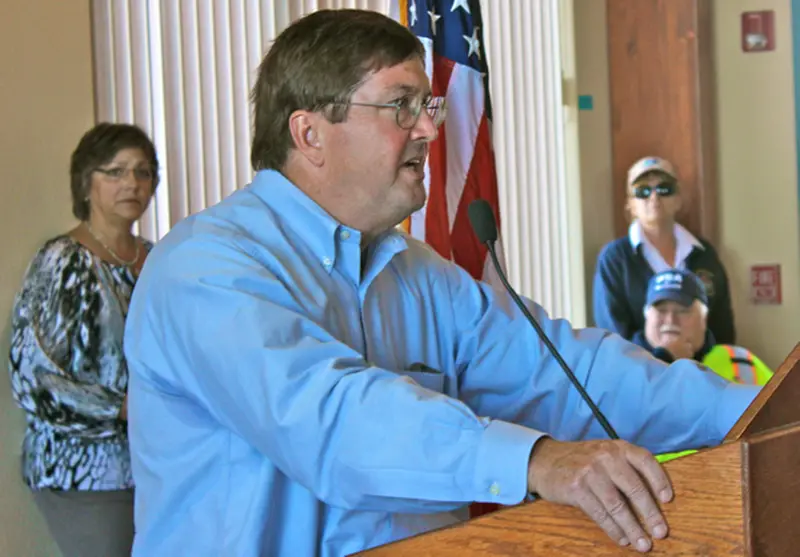
As his political profile rose, Arkley bragged to friends that he’d gotten to know one-third of the sitting Supreme Court justices. He told friends he had a relationship with Clarence Thomas, according to two people who were close with Arkley. And the Alito trip was not Arkley’s first time covering a Supreme Court justice’s travel to Alaska.
In June 2005, Arkley flew Scalia on his private jet to Kodiak Island, Alaska, two of Arkley’s former pilots told ProPublica. Arkley had paid to rent out a remote fishing lodge that cost $3,200 a week per person, according to the lodge’s owner, Martha Sikes.
Snapshots from the trip, found in the justice’s papers at Harvard Law School, capture Scalia knee-deep in a river as he fights to reel in a fish. Randolph, the appellate judge who was also on the later trip, joined Scalia and Arkley on the vacation, flying on the businessman’s jet.
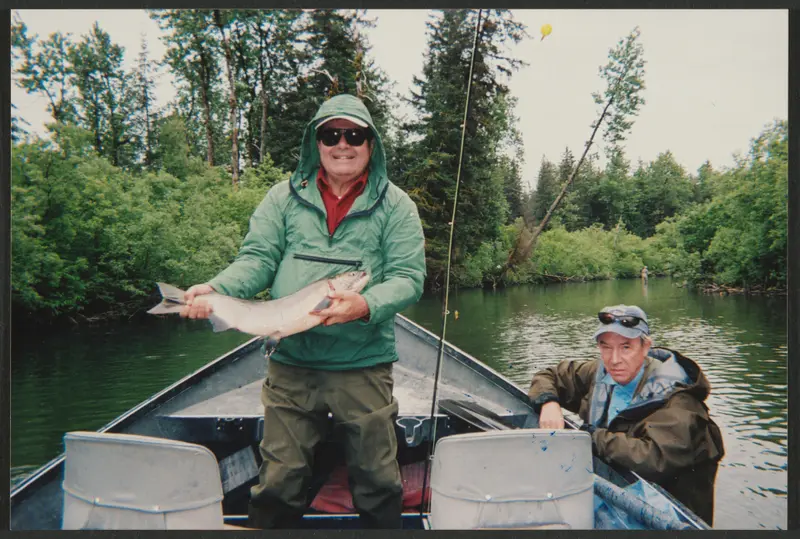
Scalia did not report the trip on his annual filing, another apparent violation of the law, according to ethics law experts. Scalia’s travels briefly drew scrutiny in 2016 after he died while staying at the hunting ranch of a Texas businessman. Scalia had a pattern of disclosing trips to deliver lectures while not mentioning hunting excursions he took to nearby locales hosted by local attorneys and businessmen, according to a research paper published after his death.
Randolph, now a senior judge on the U.S. Court of Appeals for the D.C. Circuit, did not disclose the trip. (Nor did he disclose the later trip with Alito.) Randolph told ProPublica that when he was preparing his form for 2005, he called the judiciary’s financial disclosure office to ask about disclosing the trip. He shared his notes from the call with a staffer, which say “don’t have to report trip to Alaska with Rob Arkley & others / private jet / lodge.” Kathleen Clark, an ethics law expert at Washington University in St. Louis, said, “I don’t understand how the staff member came to that conclusion based on the language in the statute.”
On June 9, Arkley’s group chartered a boat, the Happy Hooker IV, to tour Yakutat Bay. On the way over, Scalia and Arkley discussed whether Senate Republicans, then in a contentious fight over judicial confirmations, should abolish the filibuster to move forward, according to a person traveling with them.
A photo captures Arkley and Scalia later that day gazing off the side of the boat at the famed Hubbard Glacier. At one point, a guide chiseled chunks off an iceberg and passed them to Scalia. The justice then mixed martinis from Grey Goose vodka and glacier ice.
It remains unclear how Scalia ended up in Alaska with Arkley. But the justice’s archives at Harvard Law School offer a tantalizing clue. Immediately before the fishing trip, Scalia gave a speech for the Federalist Society in Napa, California. The next day, Arkley’s plane flew from Napa to Alaska. Scalia’s papers contain a folder labeled “Federalist Society, Napa and Alaska, 2005 June 3-10,” suggesting a possible connection between the conservative organization and the fishing trip.
The contents of that folder are currently sealed, however. They will be opened to the public in 2036.
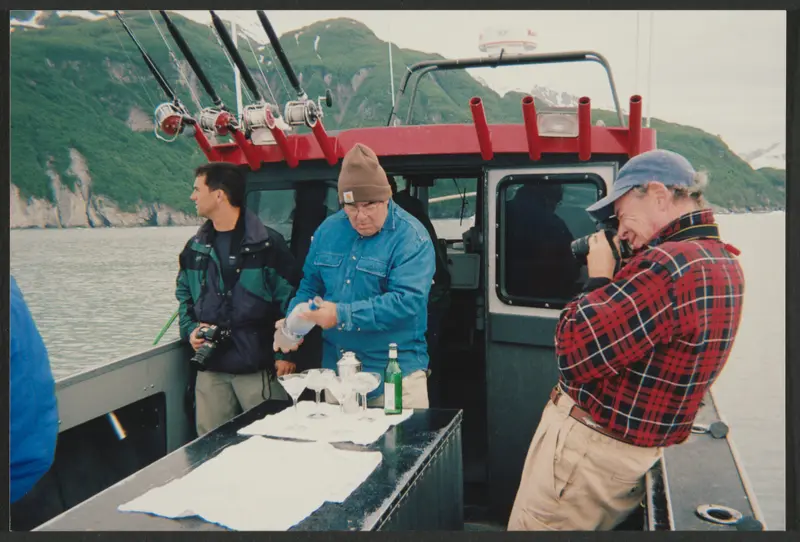
Do you have any tips on the Supreme Court? Justin Elliott can be reached by email at justin@propublica.org or by Signal or WhatsApp at 774-826-6240. Josh Kaplan can be reached by email at joshua.kaplan@propublica.org and by Signal or WhatsApp at 734-834-9383.
No comments:
Post a Comment